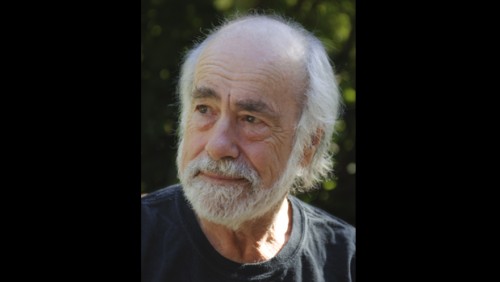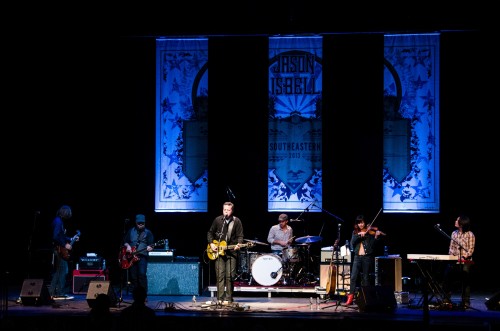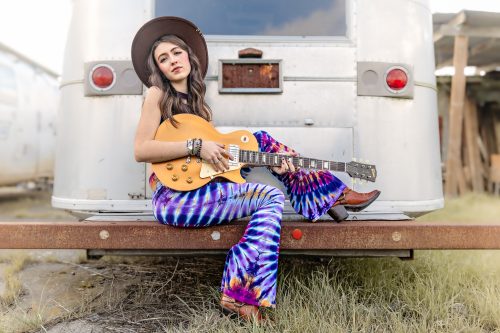By Michael Lello
Photo by Maureen Hunter
Robert Hunter’s words have left an indelible imprint on pop culture – “what a long strange trip it’s been” and “drivin’ that train, high on cocaine,” anyone?
But during his time as the lyricist for the Grateful Dead during the band’s 30-year run, and his continued output since the 1995 death of his writing partner Jerry Garcia, Hunter has chosen his lyrics to speak for themselves, granting only the occasional interview.
His live performances have been sporadic, too; last year’s tour dates, following a health scare, were his first in 10 years. The concerts went so well, Hunter has returned to the road this week for a string of East Coast dates that kicked off with three shows at City Winery in New York on Monday, and he’ll perform at Newport Folk Festival on July 25 before hitting the FM Kirby Center in Wilkes-Barre on Wednesday, July 30.
Hunter, who last year accepted a Lifetime Achievement honor from the Americana Music Association, continues to write for country singer Jim Lauderdale, former Dead cohorts and even Bob Dylan – who has only collaborated extensively with one other lyricist during his career.
We recently spoke with a jovial Hunter, who in part one of our phone interview talks about his return to the road, the importance of bringing songs to life on the stage and his time in the hospital. In part two, he opens up about his relationship with Garcia and Dylan.
H81R: You toured last year for the first time in many years. How did that go for you?
RH: I was a little afraid I might have lost my edge after all that time. And I got on stage – and you never know until you’re on stage – and I took to it like a fish to water. It made me wonder why I had completely cut out one of my favorite things, which is to stand in front of a microphone and sing songs that people appear to love (laughs) and get good response. It was wonderful. It’s the best thing there is.
H81R: Do you feel that a song needs to be played live for it to be truly a living, breathing song?
RH: Yes. Every time I do those songs I discover something new about them, and it’s not a question of getting up there and being a jukebox. There’s different things you can do with the rhythm sometimes, sometimes I might change a word or two here or there. Yes, they’re alive, and I really dig the way people are doing ’em. People out there are forming bands and playing these songs, and people are starting to have their favorite Dead bands like Cubensis. It’s all just…well, I feel like a grandfather (laughs).
H81R: How do you put together your concert setlists?
RH: There’s definitely a feeling of openers and closers, things you do at the beginning of the set, things you do at the end of the set, or things you do in the second set. I tend to do a short first set then a nice long hour-and-a-quarter second set. What happens in between, a good kickoff starter and a nice leave-’em-wantin’-more ending, it’s whatever feels right at the time. I don’t necessarily do the same setlist every night, although I’m going to be opening the shows with three nights at the Winery, and I’m going to try and do as varied a show as I can, and I’ve been working extra hard at repertoire just to be able to do that. Because ordinarily I only need about 18 songs or so together to go out with a bit of variety on a show 10 years back. I do roughly similar shows from night to night, but I don’t think that I’ll be doing that three nights in a row at the Winery.
Whatever works best those three nights, I’ll throw together a one-hour show for Newport.
H81R: Are there songs you’ve wanted to play live that didn’t work for whatever reason?
RH: Yeah. That’s true. It happens.
H81R: Do you remember which songs?
RH: Oh Jeez. I’ve been working really hard on trying to get a nice version of “Mississippi Halfstep Uptown Toodeloo” for this run of performances. Worked pretty hard at it, and all of a sudden last week, I said, “Why spend your time on this? Because you’re not gonna do it.” I think it’s a great song – that “across the Rio Grande-o” chorus on it is magnificent — but I thought “one guy singing this” – well, of course the audience will sing along – no, onto something else.
H81R: Are there any songs you never tire of performing?
RH: “Sugaree,” “Ripple,” “Tiger Rose.” Yeah, I can’t imagine doing a show without those, although I may (laughs) do a show without closing with “Ripple,” although it will feel like something’s lacking, but three nights in a row, with a lot of the same people. . . . What I’m going to consider it to be is one long show.
I’m nervous about it. I’ve never gone out with this large a repertoire of worked-up material before. But it put me on my mettle and I’m glad I chose to open up with three nights.
 H81R: What are you working on currently? Are you in a writing mode?
H81R: What are you working on currently? Are you in a writing mode?
RH: I’m trying to get back into it. I was afraid that I didn’t have that spark anymore after getting out of the hospital, but basically I’ve been putting all my energy into guitar, which I started playing as soon as I was beginning to recover.
I was in the hospital for a couple months with a spinal injury, and as soon as I could pick up my guitar, I just started playing. Because there’s nothing else to do in a hospital, and I had a private room, and the nurses would come in, and they’d want me to play for them, and I would. It was fun. I became the minstrel of the hospital (laughs).
I had put (the guitar down). I hadn’t been playing much guitar. So I really got into it and I wrote a bunch of songs, a bunch are on Mickey Hart’s last album, and I think they seem to be pretty good. They have that keenness of perception that you have when you’re staring death in the eye, but later on, when I decided to go on the road, I put all my attention on guitar playing, and I started in the hospital and decided to keep it up, and very apparently it’s time to go on the road again. Everybody was really surprised, including my doctor, my wife (laughs). I felt that I had to. And I had to find out if I could still do it. It was really important to me. Because I always told my wife, I said having my guitar and repertoire worked up is like the bullets in my gun belt, and if I don’t have that together, there’s an insecurity that comes over me. It’s real true.
H81R: It sounds like your health has taken a turn for the better.
RH: Slowly but surely, and I’m perfectly confident to stand up at a microphone.
They had to move a vertebrate around to get at this abscess in my spine, so walking is not what it used to be for me. I used to be a hiker. I don’t really expect to do that again. But I’m pleased to say that I don’t believe it’s old age that’s slowing me down, it’s the after effects of the serious operation. So instead of walking now, I swim.
H81R: As a man in your 20s, were you thinking ahead that you’d be singing these songs in your 70s?
RH: No. I always had a very high opinion (laughs), immodestly speaking, of what Jerry and I were turning out, and I thought we just hit some magical combination. I thought it was going to continue on and that we were doing something special.
H81R: And that proved to be true obviously.
RH: I wasn’t just a fantasy, it was only partly fantasy (laughs).
H81R: Are there contemporary lyricists you enjoy?
RH: Nick Cave. Brilliant.
H81R: Do you keep an ear out for new music?
RH: No. I’m only aware of Nick Cave because my daughter is such a fan and she makes me listen to him and she makes me listen to Trent Reznor. So there’s a couple of things I know about, mostly it’s a mystery to me.




[…] voices — including his own — and why he didn’t pen political songs for the Dead. In part one, he talked about his return to the road, which includes a stop at the F.M. Kirby Center in […]
A living legend, it would seem to this one. Thank ye much.
Thanks for posting this excellent interview Michael! I enjoyed your questions and Mr. Hunter’s replies. Very insightful and NOT stupid or vapid, which is very refreshing in this day & age.
Thanks again!
Sincerely,
Scott Lovett
Charlotte, NC
Happy birthday.Love ya man.Do you remember nasty rabbits at cellar door in D.C.? Best comeback. Ever. How about Uncle Vinty at Lisner? Hope you are feieling well and enjoying life. Roll on brother.